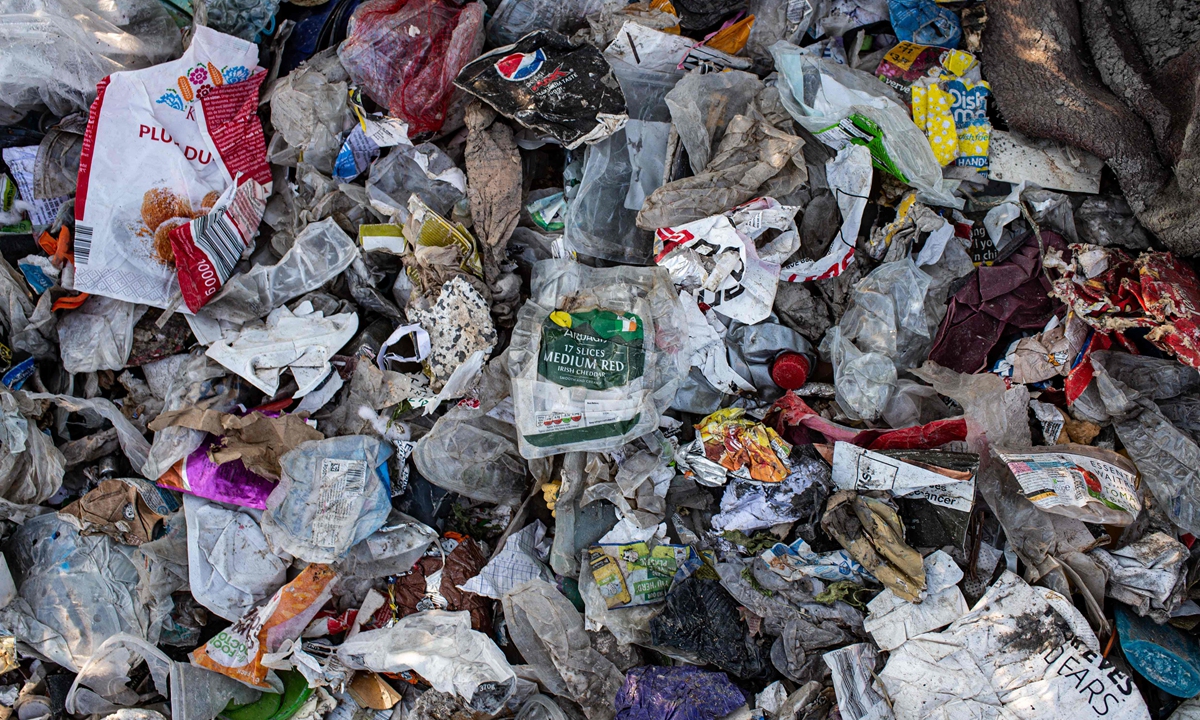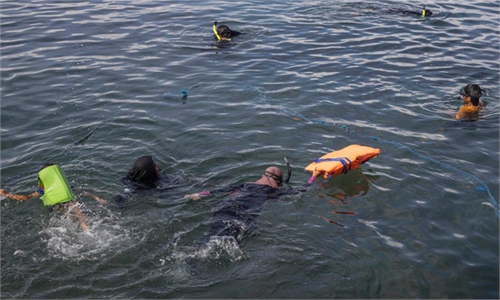US chemical recycling of plastic slammed
Plants producing toxic waste in low-income communities, study says

Turkey receivies nearly a quarter of the plastic waste exported by EU nations in 2019. Photo: VCG
Most plastic "advanced recycling" plants in the US aren't actually recycling plastic but instead converting it into a dirty fuel, while producing toxic waste in low-income communities, a study by a leading environmental group said Monday.Advanced recycling, also known as chemical recycling, is a relatively new technique touted by industry groups that breaks plastic down to its molecular building blocks.
It is said to be able to recapture more than traditional "mechanical" recycling that involves chopping plastic up and processing it into pellets to make new products.
But a research report by the Natural Resources Defense Council (NRDC), a nonprofit that has helped influence key legislation since it was founded in 1970, accused the plastics industry of misleading the public through "greenwashing."
"There has been a lot of energy and enthusiasm around this idea of chemical recycling as a potential part of the solution for the plastics waste crisis," Veena Singla, a senior scientist at the NRDC who authored the brief, told AFP. "We felt it was very important to understand, what are these technologies actually doing?"
The NRDC found that of hundreds of announced plants, just eight were either operational or soon-to-be operational, based on official federal and state documents.
Five of the eight were engaged in plastic-to-fuel conversion, to create a new low-grade fuel. One was converting carpets to nylon and two were converting plastic to chemical components.
The report said that producing fuel from plastic waste does not qualify as recycling under international definitions and that it creates harmful air pollution and greenhouse gasses when burned.
One of the plastic-to-chemical plants, run by the company Agilyx, in Oregon, theoretically takes waste polystyrene and converts it into styrene, which can then be used to make new polystyrene.
But according to the company's own figures, it is shipping hundreds of thousands of pounds of styrene oil to be burned for energy rather than converted back to plastic.
Singla told AFP it was not clear why the company would go through the "wasteful and inefficient" process of converting polystyrene to styrene, only to then burn the styrene, though one potential reason was that the styrene produced was of very low quality.
The plant also generated nearly 500,000 pounds of hazardous waste in 2019 alone, sending most of it off site to be burned, according to official figures.
AFP


